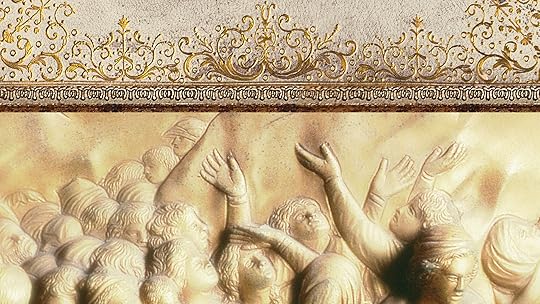R.C. Sproul's Blog, page 58
September 16, 2020
Receive a Free Journal When You Subscribe to Tabletalk for Three Years

Tabletalk magazine articulates the truths of God’s Word so that Christians may grow in their faith. More than 260,000 readers trust this monthly discipleship resource for its Bible studies and articles from capable pastors, scholars, and teachers.
You save 55% on Tabletalk when you subscribe for three years for only $49. This is our best rate at $1.36 per issue. With your three-year subscription, not only will you receive a high-quality slipcase to store issues of Tabletalk, but we will also send you a free Burning Bush Journal. Stamped with the prominent symbol of the Protestant Reformation, this journal is a companion to your daily Bible study. This offer ends Saturday, October 31. While supplies last.
Subscribe Now and Get:
A special 55% discount
A high-quality Tabletalk slipcase
A free 80-page journal
Digital access to current and past issues
Daily Bible studies
Monthly articles from gifted theologians
An effective one-year Bible reading plan
Exclusive resource offers
SUBSCRIBE NOW


God Still Uses Clay Pots

The New Testament was not written by the elite of Egypt. It was not written by the elite of Greece, Rome, or even Israel. The greatest scholars in the world at that time were down at Egypt; they were in the greatest library of antiquity at Alexandria. The most distinguished philosophers were in Athens; the most powerful leaders of men were in Rome; and the religious geniuses were in Israel’s temple. But God never used any of them! He just used clay pots. He passed by Herodotus, the historian; Socrates, the philosopher; Hippocrates, the father of medicine; Euclid, the mathematician; Archimedes, the father of mechanics; Hipparchus, the astronomer; Cicero, the orator; and Virgil, the poet. He passed by them all. Why? Clay pots served His purposes better. From a human viewpoint (and perhaps in their own minds), all those prominent people were magnificent vessels. But someone deeply impressed with his own value isn’t going to see value in the gospel. So God chose peasants, fishermen, smelly guys, and tax collectors—clay pots chosen to carry, proclaim, and write the priceless treasure we call the gospel.
God is still doing it that way. He is still passing by the elite. He is still passing by the hard-hearted, non-listening, proud intellectuals. They may be sitting in their ivory towers in the universities and seminaries, or in their bishoprics and their positions of authority in the churches, but God is finding the humble who will carry the treasure of saving truth.
How can that work? It works because “we do not preach ourselves” (2 Cor. 4:5). We are not the message. The church I pastor has been blessed because God has blessed His truth. It’s not me. When Paul says, “When I am weak, then I am strong,” he doesn’t mean that he is a man with no convictions. Neither does he mean that he is an undisciplined man, a lazy man, an irresponsible man, or a man who can’t work hard. What he means by “weak” is this: “I got myself out of the equation. And that’s when the strength became apparent—when I got myself out of the way.”
If you want to be used mightily by God, get yourself out of the way. Learn to see yourself as a garbage pail, or, in the words of Peter, to clothe yourself with humility (1 Peter 5:5). It’s not about you; it’s not your personality, it’s the Word of God. God doesn’t need the intellectuals. He doesn’t need great people, fancy people, or famous people. The people aren’t the power. The power is the message! He puts the treasure in clay pots so that “the surpassing greatness of the power may be of God and not from ourselves” (2 Cor. 4:7b).
If you look for a human explanation for Paul’s success, there isn’t one. People have said to me, “I’m studying the Bible to see why Paul was successful.” I’ll tell you why he was successful: he preached the truth. And the truth is powerful. Or they will say, “We want to come to your church to find out what makes things tick there.” I’ll tell you what makes things tick there: the truth of God. The truth of God and the power of God; those are what make things tick. The surpassing greatness explains the transcendent might of superlative power from God on the souls of those who hear the truth. We preachers are clay pots at best! In and of ourselves, we have nothing to offer, neither beauty nor power. Paul knew that, which is why he says, “I was with you in weakness and in fear and in much trembling” (1 Cor. 2:3b).
In the end, it’s OK that we’re so weak and so afraid. Our faith should not rest in ourselves anyway, but in the power of God. We’re nothing. As Paul says elsewhere, “Neither the one who plants nor the one who waters is anything, but God who causes the growth” (1 Cor. 3:7). God is everything!
Years ago, James Denney wrote: “No one who saw Paul’s ministry and looked at a preacher like Paul could dream that the explanation lay in him. Not in an ugly little Jew without presence, without eloquence, without the means to bribe or to compel could the source of such courage, the cause of such transformation, be found. It must be sought not in him, but in God.” In 1911, in his book The Glory of the Ministry, A. T. Robertson quoted Denney: “There always have been men in the world so clever that God could make no use of them. They could never do His work; they were so lost in admiration of their own. God’s work never depended on them, and it doesn’t depend on them now. The power is not the product of human genius, or cleverness, or technique, or ingenuity; the power of the gospel is in the gospel.” We ministers are weak, common, plain, fragile, breakable, dishonorable, and disposable clay pots who should be taking the garbage out—but instead we’re bringing the glory of God to our people.
The amazing thing is that such weakness does not prove fatal to the gospel. Thankfully, the gospel is not from us. The great reality is, God’s clay-pot strategy is essential to the gospel, because it makes crystal clear where the power really lies. We are unworthy servants, but God has given us the treasure of the gospel. What an inestimable privilege!
This excerpt is adapted from John MacArthur's contribution in Feed My Sheep: A Passionate Plea for Preaching.


September 15, 2020
Is Jesus Divine? 30% of “Evangelicals” Say No.

Who is Jesus Christ? Our State of Theology survey reveals what American adults and evangelicals believe about Christianity, truth, and ethics. The results are now available from our 2020 survey, conducted in partnership with Lifeway Research.
The person and work of Christ is central to the Christian faith. While the Bible plainly declares that Christ is truly God and truly man, critics have often said that Jesus was a great teacher and nothing more. The State of Theology survey reveals that 52 percent of adults in the United States hold this view.
While it may be unsurprising that the majority of the general U.S. population rejects the deity of Christ, our 2020 survey results present an eye-opening reality: 30 percent of evangelicals* now agree with the statement, “Jesus was a great teacher, but he was not God.” We asked Ligonier Teaching Fellow Dr. Stephen Nichols to explain the significance of this finding.
If Jesus’ claim to be God is false, then He was either delusional or deceptive, but He could not have been a good teacher. Moreover, Christ can only be our Mediator and Redeemer if He is God and man. To negotiate the deity of Christ is to abandon the gospel.
These survey results suggest an urgent need for clear biblical teaching on the person and work of Jesus Christ. There is much work to be done in this age of confusion, but we hope the findings of this survey will serve the church in its calling to reach more people with the faithful proclamation of God’s Word.
* Evangelicals were defined by this survey as people who strongly agreed with the following four statements:
The Bible is the highest authority for what I believe.
It is very important for me personally to encourage non-Christians to trust Jesus Christ as their Savior.
Jesus Christ’s death on the cross is the only sacrifice that could remove the penalty of my sin.
Only those who trust in Jesus Christ alone as their Savior receive God’s free gift of eternal salvation.


Time and Vocation
Here’s an excerpt from Time and Vocation, Grant R. Castleberry's contribution to the September issue of Tabletalk:
We all know that time is a precious commodity. I have always been impressed with Jonathan Edwards’ fifth resolution: “Resolved, never to lose one moment of time; but improve it the most profitable way I possibly can.” Paul said something similar in Ephesians 5:15–16: “Look carefully then how you walk, not as unwise but as wise, making the best use of the time, because the days are evil.” Therefore, as Christians, we should ask ourselves, “How can I best use my time in this life to honor the Lord and advance His kingdom?”
Continue reading Time and Vocation, or begin receiving Tabletalk magazine by signing up for a free 3-month trial.
For a limited time, the new TabletalkMagazine.com allows everyone to browse and read the growing library of back issues, including this month’s issue.


September 14, 2020
Since Jesus Took Our Punishment, Why Didn't He Need to Go to Hell Forever?

The smallest sin deserves eternal judgment from a holy God. Why didn’t Jesus need to spend eternity in hell in order to satisfy the Father’s justice on our behalf? From one of our Ask R.C. events, R.C. Sproul expresses the infinite value of Christ’s atoning work.
To ask a biblical or theological question, just visit ask.Ligonier.org or message us on Facebook or Twitter.
Read the Transcript


Do You Care About the Widows?

In biblical terms, to be religious does not necessarily mean you are godly. To be religious can mean simply that you’re involved in the trappings of religion, that you may be a member of a false religion. Yet, the Scriptures sometimes speak of religion in a positive sense, in the sense of practice that is the fruit of true faith in Christ and commitment to His Word.
The Apostle James focuses on religion as the practice of those who have true faith in Jesus, and he says that true religion demonstrates the presence of saving trust in the Lord (James 2:14–26). What true godliness looks like, he tells us, is not a matter of merely holding to right doctrine with our minds, though that is essential. No, true godliness means that doctrine shapes our lives to such a degree that we manifest the kind of life God wants us to live. And James gives us a succinct definition of true religion, of true godliness: “Pure and undefiled religion before God and the Father is this: To visit orphans and widows in their trouble, and to keep oneself unspotted from the world.” James elevates the activity of caring for widows and orphans as the very essence of pure and undefiled religion. That strikes me as being very significant, and it’s an idea that is neglected in the church today.
In this article, I want to focus particularly on widows. Widows and their care figure prominently in the agenda that God has set for His church. One of the earliest problems that arose in the Apostolic church was that the widows were being neglected. And if that was a problem in the first-century church, how much more likely is it that we, twenty centuries later, would be guilty of neglecting the widows in our midst?
After my grandfather died, my grandmother moved into our home and lived with us for many years as I was growing up. On several occasions, she would talk to me late at night and weep, telling me of the burden of pain she had in feeling like she had not only lost her husband but that she had also lost her place in the community. Once her husband passed, she suddenly felt excluded from the things she was intimately involved with alongside him while he was alive. When a person loses her lifelong mate, it’s like losing an integral, intimate part of one’s self because husband and wife, we are told, in the mystery of marriage are one flesh. So, the pain of widowhood brings a unique dimension of loneliness. It’s jarring to suddenly be alone when one has been accustomed to the constant companionship with one’s spouse over a long period of time. Since God is the great Comforter of His people, it makes sense that He would have such concern for widows given the pain they experience.
Now, why does James not mention the widowers? After all, the widower also experiences that same pang of suffering that goes with losing a lifelong mate. Well, every man that I’ve ever talked to always says they want to go first because they can’t imagine living life without their wives. I can’t prove it, but I think that’s one of the reasons why the normal life expectancy of the man is shorter than the life expectancy of the woman, because God is gracious to us men, and He knows that we’re not as strong as women. But what I do know for sure is that widows have always experienced particular difficulties in every age and culture. They faced particular problems in the ancient world. There weren’t insurance programs, annuities, or other sorts of things, and without a husband, the widow was usually the most vulnerable and helpless person in the community. Widows had little or no means of support in ancient societies. Thus, the care of the widows was given to the church both in the Old Testament and in the New.
Jesus frequently pays attention to widows in His teaching. Just consider the story of the widow’s mite in Mark 12:41–45. Who is it that normally gets the attention in the church? The people who are the big donors, the ones whose donations are so important to the ongoing funding of the church’s budget. Few pay attention to the poverty-stricken person who makes a tiny donation that’s insignificant to the budget’s bottom line. But Jesus noticed what everyone else overlooked. He told His hearers to look at the poor widow. Even though the woman gave only the equivalent of two pennies to the temple, she put in more than all the rest of the people who donated heavily to the treasury because in giving out of her own poverty, she gave out of her devotion to God.
One of the most tender moments recorded in the New Testament is found in John 19:16b–27. While Christ was on the cross, He looked in the direction of His mother, who was an eyewitness to His passion, and He said to her, “Woman, behold your son!” He was not asking His mother to look at Him. Obviously, she already was looking at Him. Then, Jesus said to John, “Behold your mother!” In His dying moments, Jesus was commending the care of His widowed mother to His beloved disciple, John. On the cross, Jesus said to John, “John, you take care of My mother. She’s a widow, so let her be to you as your own mother.” To Mary, He said, “Mother, let John be to you as your own son.”
What are sons for? To look after their mothers. What are mothers for but to look after their children? When you think of all of the years and the opportunities where mothers have looked after their children when they enter into their loneliness, the first line of care is to be the surviving family. But it by no means stops there, because the larger family is the church. James, the brother of Jesus, sees this mandate to care for widows as so important that he uses it to describe the crystallized essence of true religion. Do you think you’re religious, but you don’t care about the widows? Your religion is an exercise in futility, because James says pure and undefiled religion is the care of widows and of orphans in times of trouble.
This post was originally published in Tabletalk magazine.


September 12, 2020
The Maccabean Revolt

The centuries leading up to the birth of Christ were filled with the drama of conquest and revolution. In this brief clip from his teaching series Dust to Glory, R.C. Sproul surveys the Maccabean revolt and the Roman domination of the Hebrew people.
Transcript:
In the year 164 BC, we have what has been called in history the Maccabean revolt. The Maccabean revolt came to pass when a man, a Jewish believer by the name of Mattathias, who had five sons, rose up in protest against the policies of Antiochus and sought to fight a rearguard guerilla warfare-type of insurrection against the Antiochan invaders. Well, in the beginning of this period, very shortly after the revolt broke out, Mattathias died, and so the leadership of the revolt fell to his third oldest son, whose name was Judas. He assumed or received the name Judas Maccabeus, which means “Judas the Hammerer.” He became a national hero and remains a national hero in Jewish tradition because of his daring and bold raids and forays against the invaders. And he was able to win certain concessions from the rulers in the year 164, which included religious freedom being restored to the Jewish people and the temple being opened once again for the celebration of Jewish worship. And so, in that year, the Jewish temple was rededicated, and a great feast and celebration ensued, which is celebrated to this very day. The reopening and rededication of the temple took place in the month of December and is celebrated to this day under the feast of Hanukkah. We’re all familiar with the Jewish celebration of Hanukkah, which is a celebration of the victory of Judas Maccabeus in this period of revolt. In 142, the Jews, under the Maccabees, were able to gain their full freedom from foreign domination, and their liberation and freedom lasted from the year 142 until the year 63 BC, when Palestine was once again conquered. But this time, the conquerors were the Romans, and the general who was responsible for the conquest of Palestine in the year 63 BC is a man with whom we’re somewhat familiar because of our awareness of Shakespeare’s play, Julius Caesar, and our history books that tell us of the first great triumvirate that included in its members the general whose name was Pompey. And Pompey, you know, became associated with Julius Caesar, and there were all kinds of intrigue later on. We remember in the story that Shakespeare gives us of the assassination of Julius Caesar, that when Brutus stabbed Caesar and Caesar’s last words were what? “Et tu, Brute? Then fall, Caesar.” And then in the climactic moment in this scene of the play, Julius Caesar falls dead there on the floor of the Senate, and he falls dead at the foot of the bust of Pompey. Well, it’s this man Pompey who was responsible for the Roman conquest of the Jewish nation in the year 63.


September 11, 2020
How Can I Discern the Will of God?

How can we discover God’s will for our lives? From one of our Ask Ligonier events, Derek Thomas provides the answer that has helped Christians through the centuries.
Message us for clear, concise, and trustworthy answers to your biblical and theological questions at ask.Ligonier.org.
Read the Transcript


God Is Satisfied

In the eleventh century, one of the church's most brilliant thinkers, Anselm, archbishop of Canterbury, wrote three important works that have influenced the church ever since. In the field of Christian philosophy, he gave us his Monologium and his Proslogium; in the field of systematic theology, he penned the great Christian classic Cur Deus Homo, which being translated means "Why the God-Man?"
In this work, Anselm set forth the philosophical and theological foundations for an important aspect of the church's understanding of the atonement of Christ, specifically the satisfaction view of the atonement. In it, Anselm argued that it was necessary for the atonement to take place in order to satisfy the justice of God. That viewpoint became the centerpiece of classical Christian orthodoxy in the Middle Ages, in terms of the church's understanding of the work of Christ in His atonement. Since then, however, the satisfaction view of the atonement has not been without its critics.
In the Middle Ages, questions were raised about the propriety of thinking that the atonement of Jesus was made necessary by some abstract law of the universe that required God's justice to be satisfied. This gave rise to the so-called Ex Lex debate. In the Ex Lex debate, the question was raised as to whether God's will functioned apart from any law or outside of any law (ex lex), or whether the will of God was itself subjected to some norm of righteousness or cosmic law that God was required to follow and, therefore, His will was exercised under law (sub lego). The question was: Is God apart from law or is He under law?
The church's response to this dilemma was to say basically "a pox on both houses," and to declare that God is neither apart from law nor under law in these respective senses. Rather, the church responded by affirming that God is both apart from law and under law, in so far as He is free from any restraints imposed upon Him by some law that exists outside of Himself. In that sense, He is apart from law and not under law. Yet at the same time, God is not arbitrary or capricious and works according to the law of His own nature. The church declared that God is a law unto Himself. This reflects not a spirit of lawlessness within God, but that the norm for God's behavior and God's will is based on what the seventeenth-century orthodox theologians called "the natural law of God."
The natural law of God, as a theological expression, can be easily misunderstood or confused with the broader concept that we encounter in political theory and in theology of the so-called "law of nature" (lex naturalis). In that sense of the phrase, the law of nature refers to those things that God reveals in the world of nature about certain principles of ethics. In distinction from this common use of the term natural law, what the seventeenth-century Westminster divines had in view when they spoke of the natural law of God was this: that God operates according to the law of His own nature. That is to say, God never acts in such a way that would contradict His own holiness, His own righteousness, His own justice, His own omnipotence, and so on. God never compromises the perfection of His own being or character in what He does.
When the church confesses the necessity of the satisfaction of God's righteousness, this necessity is not something that is imposed upon God from the outside, but it is a necessity imposed upon God by His own character and nature. It is necessary for God to be God, never to compromise His own holiness, righteousness, or justice. It is in this sense that an atonement that satisfied His righteousness is deemed necessary.
In more recent times, modern thinkers have objected to the satisfaction view of the atonement on the grounds that it casts a shadow over the free grace and love of God. If God is a God of love, why can He not just forgive people gratuitously from the pure motivation of His own love and grace, without being concerned about satisfying some kind of justice, whether it's a law of His own nature or a law imposed from without? Again, this view of the atonement fails to understand that God will never negotiate His own righteousness, even out of His desire to save sinners.
In the atonement, we see that God both manifests His gracious love towards us and yet at the same time, manifests a commitment to His own righteousness and justice. Justice is served by the work of Christ who satisfies the demands of God's righteousness, thereby maintaining God's commitment to righteousness and justice. God satisfied the demands of His righteousness by giving to us a Substitute who stands in our place, offering that satisfaction for us. This displays marvelously the graciousness of God in the midst of that satisfaction. God's grace is illustrated by the satisfaction of His justice in that it is done for us by the One whom He has appointed. It is God's nature as the Judge of all the world to do what is right. And the Judge who does what is right never, ever violates the canons of His own righteousness.
The Bible explains the cross in terms of both propitiation and expiation, the twin accomplishments of Christ in our behalf. Propitiation refers specifically to Christ's work of satisfaction of God's righteousness. He pays the penalty for us that is due our sins. We are debtors who cannot possibly pay the moral debt that we have incurred by our offense against the righteousness of God, and God's wrath is satisfied and propitiated by the perfect sacrifice that Christ makes on our behalf. But that's only one aspect of the work. The second is expiation. In expiation, our sins are removed from us, remitted by having our sins transferred or imputed to Christ, who vicariously suffers in our stead. God is satisfied, and our sin is removed for us in the perfect atonement of Jesus. This fulfills the dual sense in which sin was atoned for on the old-covenant Day of Atonement, both by the sacrifice of one animal and the symbolic transfer of the sins of the people to the back of the scapegoat, who was then sent into the wilderness, removing the sins from the people.
This post was originally published in Tabletalk magazine.


September 10, 2020
$5 Friday (And More): The New Testament, Preaching, & Joseph

It’s time for our weekly $5 Friday sale. This week’s resources include such topics as the New Testament, preaching, Joseph, the doctrines of grace, faith, repentance, and more.
Plus, several bonus resources are also available for more than $5. These have been significantly discounted from their original price. This week’s bonus resources include:
The New Testament Canon with Michael Kruger, DVD $30 $12
The New Testament Canon with Michael Kruger, Study Guide $15 $8
The Providence of God with R.C. Sproul, CD Collection $24 $12
The Providence of God with R.C. Sproul, Study Guide $10 $5
The Next 500 Years: 2017 National Conference , DVD $75 $15
The Next 500 Years: 2017 National Conference , CD $55 $25
Pulpit Aflame , Hardcover Book $25 $12
The Next Story: Faith, Friends, Family, and the Digital World by Tim Challies, Paperback Book $15 $10
When Worlds Collide by R.C. Sproul, Paperback Book $10 $6
Let’s Study the Letters of John by Ian Hamilton, Paperback Book $13 $9
Joseph and the Gospel of Many Colors: Reading an Old Story in a New Way by Voddie Baucham, Paperback Book $20 $10
A Puritan Theology: Doctrine for Life , Hardcover Book $60 $30
Luther on Leadership by Stephen Nichols, Paperback Book $2.50 $1.50
What Is Faith? by R.C. Sproul, Paperback Book $2 $1
The Synod of Dort: 2019 January Tabletalk , Magazine $3 $1
The Beatitudes: June 2017 Tabletalk , Magazine $3 $1
Faith and Repentance: June 2013 Tabletalk , Magazine $3 $1
Sale runs through 12:01 a.m.–11:59 p.m. Friday ET.
View today’s $5 Friday sale items.


R.C. Sproul's Blog
- R.C. Sproul's profile
- 1931 followers



